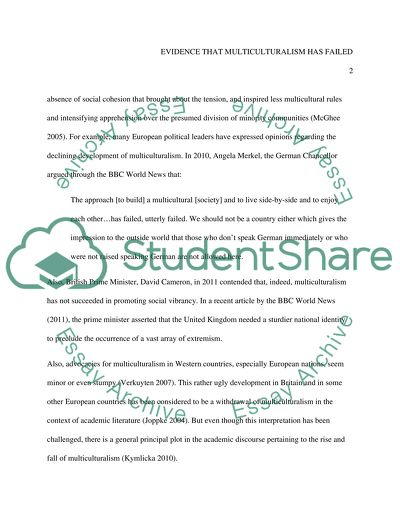Cite this document
(“Multiculturalism Has Failed Essay Example | Topics and Well Written Essays - 2000 words”, n.d.)
Retrieved from https://studentshare.org/sociology/1465342-multiculturalism-has-failed
Retrieved from https://studentshare.org/sociology/1465342-multiculturalism-has-failed
(Multiculturalism Has Failed Essay Example | Topics and Well Written Essays - 2000 Words)
https://studentshare.org/sociology/1465342-multiculturalism-has-failed.
https://studentshare.org/sociology/1465342-multiculturalism-has-failed.
“Multiculturalism Has Failed Essay Example | Topics and Well Written Essays - 2000 Words”, n.d. https://studentshare.org/sociology/1465342-multiculturalism-has-failed.


